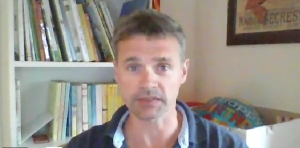The Texas Farm Bureau Summer Conference hosted a live video session with Ukrainian farmer Kornelis or Kase Huizinga. Huizinga has been farming in Ukraine for 20 years, where he grows carrots, wheat, barley, canola, sugar beat, corn, sunflowers, navy beans, and raises dairy. He is a part of the Global Farmer Network.
Offering his perspective on farming in a war zone, Huizinga told attendees, “We have only had one rocket landing in our village a few months ago.” He continued, “I’m jealous that you can discuss farm bills, insurance, and other stuff. You can at least discuss those things, but there’s no discussion about bombs and grenades…it’s better than having a war.”
Harvest season is coming up in the country or Ukraine, and Huizinga indicated that farmers are preparing purchases of fertilizers, seeds, and chemicals. He has purchased additional tanks to store fuel, storing as much as 100,000 gallons. But, some farmers were not so lucky, “There’s other farmers, colleagues of mine, who didn’t have fuel in the spring…they had to stop planting for ten days because fuel is not available.”
The closure of Russia, Belorussia, and the Black Sea Ports has limited supply and the bombing of Ukraine, where fuel was produced. Huizinga indicated that logistics have become more challenging to arrange shipments.
An additional challenge to farmers is the potential labor shortage during the planting of fall and winter wheat, “The army is taking more and more people…it’s going to be difficult.” Huizinga continues, “We will go completely into ‘no-till’ farming to save fuel and labor.”
Exports are not happening due to port closures; Huizinga indicated that some of his neighbors still have up to 50 to 80 percent of last year’s crops in stock. Because of this, they cannot purchase fuel or pay wages, and many are considering not planting this next season. We only need 25 percent locally, but 75 percent of our yields must be exported.
Only two percent of the United States population is responsible for producing fuel, food, and fiber for the rest of the country. Huizinga expresses his concern for food shortages in African, African, and Middle Eastern countries, “For those people that already spend 80 to 90 percent of their income on food, they will have hunger. Those people who already have hunger are going to die.”
At the end of his session, Huizinga received a standing ovation from participants.



